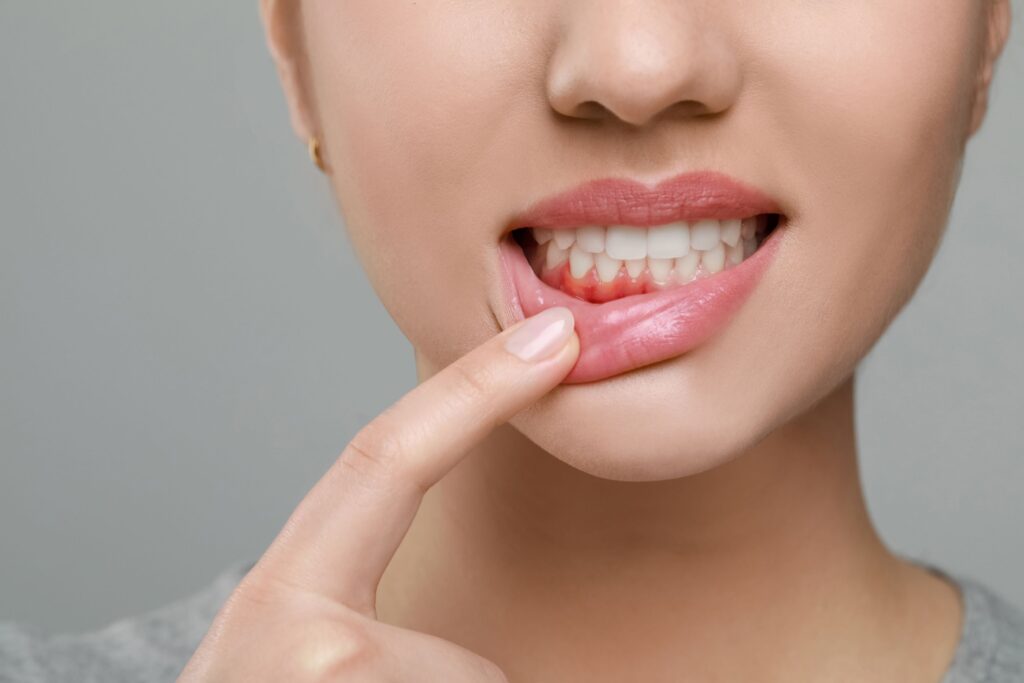
Brushing your teeth twice daily is essential to removing plaque and bacteria from your enamel and gumline to prevent problems, but if you’re not also flossing, you’re doing your smile a disservice. You might think that if your connective tissues must be healthy if you don’t see an immediate issue, but that’s not always the case. The earliest form of gum disease, gingivitis, often goes unaddressed because it’s difficult to detect.
Continue reading to learn about 3 additional misconceptions you might have about gum disease so you can prevent them!
Myth #1: I Don’t Have Cavities So I’m Safe
It’s easy to assume that if you’ve been regularly scrubbing your teeth, that your mouth is protected from common concerns like cavities and gum disease. However, while brushing can effectively remove about 65% of the plaque from the visible surfaces of your teeth, it can build up along your gums. If bacteria penetrate the connective tissues, it can cause an infection regardless of whether tooth decay is already present.
Flossing regularly is equally as important as brushing because it can reach below the gumline to remove what your toothbrush simply can’t reach. Doing both on a consistent basis is a simple and effective way to keep your smile happy and healthy.
Myth #2: It’s Always Caused by Poor Oral Hygiene
While it’s true that flossing more consistently can prevent periodontal problems, it’s not a full proof solution. This is because there are several factors that can contribute to gum disease besides your dental hygiene habits.
For instance, some families are more genetically predisposed to having issues. It can also be caused by poor nutrition or hormonal changes, like during pregnancy or menopause. You might also be more likely to develop it if you have other medical conditions, like diabetes. There are many reasons your dentist might recommend gum disease treatment, and if you’re unsure why it was suggested, feel free to ask!
Myth #3: It Only Affects Your Mouth
Many people tend to think of their mouths as separate from their overall health, but your dental condition can greatly impact your general well-being. If the disease progresses, it can eventually enter your blood stream and travel to other areas of your body. From there, it can threaten many major systems and contribute to concerns like heart problems, diabetes, stroke, Rheumatoid arthritis, or and respiratory diseases.
If you’re concerned that you may have developed gum disease, the best next step is to contact your dentist for help!
Meet the Author
Dr. Mayda Ferguson has more than a decade of experience helping people improve their lives by enhancing their dental health. She earned her Doctor of Dental Surgery from the Louisiana State University School of Dentistry in New Orleans and is a valued member of the American Dental Association and other organizations, so you can trust that your grin is in good hands. She prioritizes patient comfort, and takes the time to learn your unique concerns and goals so she can tailor treatments to meet them, including gum disease therapy. You can request an appointment on the website or call (504) 833-2220.
 mayda Ferguson, DDS
mayda Ferguson, DDS
